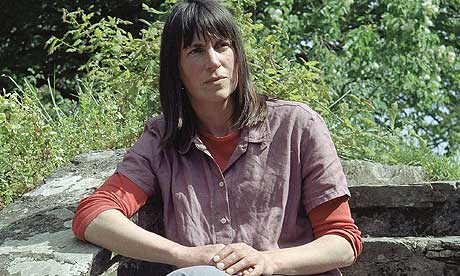
Alice Oswald was seen as a strong contender for the TS Eliot prize, so her withdrawal from the shortlist this week (followed by that of John Kinsella) was a significant sacrifice. She did so in protest against the long-standing poetry award's new sponsor Aurum, which manages the investments of hedge funds, stating that "poetry should be questioning not endorsing such institutions".
Like Hari Kunzru's rejection of the Mail on Sunday-backed John Llewellyn Rhys prize in 2003 (saying the paper was "xenophobic"), Oswald's stance was unusual in being political, not personal; today's writers with qualms turn up but criticise the prize-givers, as Ian McEwan did this year in controversially accepting the Jerusalem prize.
Her peers perhaps won't be grateful that her position asks questions of them; not just the poets still on the TS Eliot shortlist, but also novelists with hopes of the Booker prize, which was slated for Booker's "colonial" connections in John Berger's 1972 victory speech but which, as the Man Booker prize, is now sponsored by a leading hedge fund, the Man Group. And should they be willing to accept the Impac Dublin prize without knowing what Impac (self-styled "agents of change" making businesses more efficient) does? Or a fat cheque funded by Alfred Nobel, owner of the arms maker Bofors?
Unlike Oswald, writers of books for adults have generally felt that acceptance is not endorsement, but things are different in children's fiction, where Nestlé's sponsoring activities have caused a series of rows. A mooted teenage version of the Nestlé Smarties prize (won in its junior form by almost every big name in children's writing), for instance, was axed after protests by Melvin Burgess and others; and Germaine Greer and Jim Crace both pulled out of the Hay festival when Nestlé sponsored it.
Outside the pre-teen political minefield, in contrast, withdrawals tend to be on personal grounds, as when John le Carré asked to be taken out of contention for the Man Booker International prize because "I do not compete for literary prizes". And there was a particularly charming instance of this last week when Alasdair Gray attempted to decline the £5,000 Saltire prize (because, it later emerged, he had long felt awards "ought to go to younger writers"). He failed, however, but felt "cheered and touched" by the judges' "refusal to accept my refusal" – not least because his wife was "furious" about his self-denial because "from time to time we do need money".

